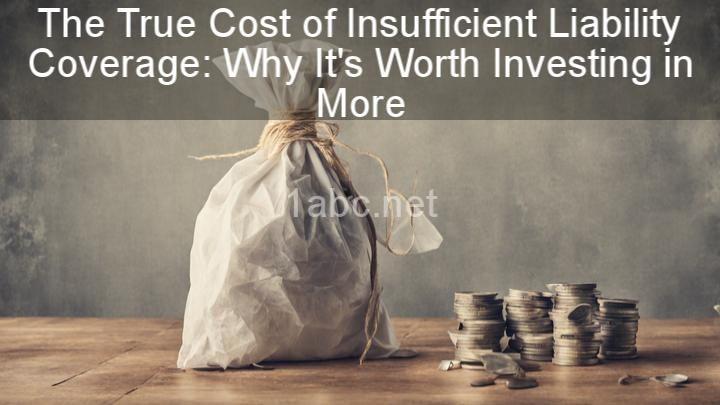The Pros and Cons of High vs. Low Deductibles in Automotive Insurance
Introduction:
I. Understanding Deductibles:
II. High Deductibles: Pros and Cons
1. Lower Premiums:
2. Financial Flexibility:
3. Encourages Responsible Driving:
1. Higher Out-of-Pocket Costs:
2. Limited Coverage for Minor Accidents:
III. Low Deductibles: Pros and Cons
1. Comprehensive Coverage:
2. Easier Financial Burden during Accidents:
1. Higher Premiums:
2. Potential for Overpaying for Small Claims:
IV. Choosing the Right Deductible for You
Conclusion:

Introduction:
Automotive insurance is an essential part of owning a vehicle. It provides financial protection in case of accidents or damages. When it comes to automotive insurance, deductibles play a crucial role in determining the coverage and cost of your policy. In this blog post, we will explore the pros and cons of high vs. low deductibles, helping you make an informed decision about your insurance coverage.
I. Understanding Deductibles:
Before diving into the pros and cons, let's start by understanding what deductibles are in automotive insurance. A deductible is the amount of money you are responsible for paying out of pocket before your insurance coverage kicks in. It is a way for insurance companies to share the risk with the policyholder. Deductibles can vary depending on the type of coverage and the insurance company.
II. High Deductibles: Pros and Cons
A. Pros:
1. Lower Premiums:
One of the significant advantages of opting for a higher deductible is the potential for lower monthly premiums. When you choose a higher deductible, you are essentially taking on more financial responsibility in the event of a claim. As a result, insurance companies are willing to offer lower premiums since they have less risk.
2. Financial Flexibility:
Having a higher deductible can provide you with more control over your budget. By accepting a higher out-of-pocket expense, you can allocate your funds towards other needs, such as savings or emergency expenses. This financial flexibility can be particularly beneficial for those who have a stable financial situation and can afford to pay a higher deductible if needed.
3. Encourages Responsible Driving:
Opting for a higher deductible can also encourage responsible driving behavior. When you know that you will be responsible for a significant portion of the repair costs in the event of an accident, you may be more cautious on the road. This can lead to safer driving habits and a reduced likelihood of accidents.
B. Cons:
1. Higher Out-of-Pocket Costs:
While lower premiums may be attractive, it's essential to consider the potential disadvantage of higher out-of-pocket costs when filing a claim. If you choose a high deductible and have an accident or damage to your vehicle, you will be responsible for paying a larger sum before your insurance coverage kicks in. This can be a significant financial burden, especially if you are not prepared for such expenses.
2. Limited Coverage for Minor Accidents:
Another drawback of high deductibles is the potential for limited coverage for minor accidents. If the cost of repairs falls below the deductible threshold, your insurance may not cover the damages. This means that you would have to pay for the repairs out of pocket, even though you have insurance coverage. It's crucial to consider the likelihood of minor accidents and whether you are comfortable with the possibility of not receiving coverage for these incidents.
III. Low Deductibles: Pros and Cons
A. Pros:
1. Comprehensive Coverage:
One of the significant advantages of choosing a low deductible is the assurance of comprehensive coverage. With a low deductible, even minor damages are covered by your insurance. This can provide peace of mind knowing that you are protected in case of any mishaps, no matter how small.
2. Easier Financial Burden during Accidents:
Accidents can be financially stressful, especially when you have to bear the costs upfront. By opting for a lower deductible, you can alleviate some of the financial burden that comes with accidents. Instead of having to pay a significant amount out of pocket, your insurance coverage will kick in sooner, reducing your immediate financial responsibility.
B. Cons:
1. Higher Premiums:
While a low deductible may provide comprehensive coverage and ease the financial burden during accidents, it typically comes with higher monthly premiums. Insurance companies consider the increased risk they face when offering lower deductibles and adjust the premiums accordingly. It's essential to evaluate your budget and determine whether you can comfortably afford higher premiums on an ongoing basis.
2. Potential for Overpaying for Small Claims:
Another consideration when choosing a low deductible is the possibility of overpaying for small claims. If you rarely make small claims, the higher premiums associated with a low deductible may not be cost-effective in the long run. It's crucial to assess your driving habits, the likelihood of filing claims, and the potential costs involved to decide if a low deductible is the right choice for you.
IV. Choosing the Right Deductible for You
Choosing the right deductible for your automotive insurance policy depends on several factors. Here are some tips and considerations to help you make an informed decision:
-
Assess your budget and financial stability: Consider how much you can comfortably afford to pay out of pocket in the event of a claim. Be realistic about your financial situation and choose a deductible that aligns with your budget.
-
Evaluate your risk tolerance: Think about your driving habits, the condition of your vehicle, and the likelihood of accidents or damages. If you drive cautiously and have a reliable vehicle, you may be more comfortable with a higher deductible.
-
Balance affordability and coverage: Strike a balance between the cost of premiums and the level of coverage you desire. Evaluate the long-term cost implications of high and low deductibles and choose an option that provides adequate protection while fitting your budget.
Conclusion:
In conclusion, the choice between high and low deductibles in automotive insurance is a personal one. Both options have their pros and cons, and it's essential to consider your individual circumstances and preferences when making a decision. Take into account factors such as your budget, risk tolerance, and financial stability. By carefully weighing your options, you can choose a deductible that aligns with your needs and provides the right balance between cost and coverage. Remember, there is no one-size-fits-all approach when it comes to deductibles in automotive insurance. Stay insured, drive safely, and enjoy the peace of mind that comes with having the right coverage for your needs.
FREQUENTLY ASKED QUESTIONS
What is a deductible in automotive insurance?
A deductible in automotive insurance refers to the amount of money that you, as the policyholder, are responsible for paying towards repairs or damages before your insurance coverage kicks in. It's like a self-imposed limit on your policy. For example, let's say you have a deductible of $500 and you get into a car accident that causes $2,000 worth of damage. In this case, you would be responsible for paying the first $500 towards the repairs, and your insurance would cover the remaining $1,500.
Typically, the higher your deductible, the lower your insurance premiums will be. This is because you are taking on more financial responsibility in the event of a claim. On the other hand, if you have a lower deductible, your premiums will be higher, but you'll have less out-of-pocket expenses if you need to make a claim.
It's important to note that deductibles are specific to each coverage type within your policy. For example, if you have comprehensive and collision coverage, you may have different deductibles for each. It's also important to review your policy to understand how your deductible works and what it applies to.
Overall, deductibles are an essential aspect of automotive insurance as they play a role in determining the cost of your premiums and the amount you'll need to pay out-of-pocket in the event of a claim.
What is the difference between high and low deductibles?
High and low deductibles refer to the amount of money you are required to pay out of pocket before your insurance coverage kicks in. The main difference between the two lies in the cost-sharing arrangement between you and your insurance provider.A high deductible means that you will have to pay a larger amount upfront before your insurance begins to cover your expenses. This can result in lower monthly premiums since the insurance company is taking on less risk. However, it also means that you will have to pay more out of pocket if you need to use your insurance.
On the other hand, a low deductible means that you will have to pay a smaller amount before your insurance starts covering your costs. This can lead to higher monthly premiums since the insurance company is taking on more risk. However, it also means that you will have to pay less out of pocket when you need to use your insurance.
The choice between a high or low deductible depends on your individual financial situation and risk tolerance. If you have enough savings to cover a higher deductible and want to save on monthly premiums, a high deductible plan might be suitable for you. However, if you prefer to have more predictable out-of-pocket costs and can afford higher monthly premiums, a low deductible plan may be a better option.
It's important to carefully consider your needs and budget before selecting a deductible amount. Remember that insurance is designed to protect you from significant financial burdens, so choose a deductible that aligns with your comfort level.
What are the pros of having a high deductible?
Having a high deductible can come with several advantages. Let's explore some of the pros:
-
Lower Premiums: One of the main benefits of having a high deductible is that it usually leads to lower monthly premiums. By opting for a higher deductible, you can potentially save money in the long run, especially if you rarely need to use your insurance.
-
Cost Control: With a high deductible, you have more control over your healthcare expenses. You can choose when and how to spend your healthcare dollars, as you'll be responsible for paying for most of your medical costs until you reach your deductible. This can help you become more mindful of your healthcare choices and potentially reduce unnecessary spending.
-
Health Savings Account (HSA): If you have a high deductible health plan (HDHP), you may be eligible to open a Health Savings Account. HSAs offer tax advantages and allow you to save pre-tax dollars to pay for qualified medical expenses. This can be a great way to save for future healthcare needs while enjoying potential tax benefits.
-
Lower Long-Term Costs: While high deductibles may mean higher out-of-pocket costs initially, they can help control long-term costs. By encouraging individuals to be more selective with their healthcare usage, high deductibles can lead to a more efficient and cost-effective healthcare system overall.
-
Flexibility: High deductible plans often provide more flexibility in choosing healthcare providers and services. Since you are responsible for a larger portion of the costs, you can have more freedom in selecting the healthcare professionals and treatments that best suit your needs.
-
Incentive for Preventive Care: Knowing that you'll have to pay for most of your medical expenses until you reach your deductible can motivate you to prioritize preventive care. Regular check-ups and screenings can help catch potential health issues early, which can save you money and improve your overall well-being.
It's important to keep in mind that high deductible plans may not be the best choice for everyone. If you anticipate frequent medical needs or have a chronic condition, a lower deductible plan might be more suitable. It's always a good idea to assess your individual circumstances and consider your healthcare needs before making a decision.
What are the cons of having a high deductible?
Having a high deductible can come with a few drawbacks. Here are some cons to consider:
-
Financial burden: A high deductible means you'll have to pay a significant amount out of pocket before your insurance coverage kicks in. This can be a financial strain, especially if you have unexpected medical expenses or if you need frequent medical care.
-
Limited coverage: With a high deductible, you may find that certain services or treatments are not covered until you meet your deductible. This could result in you having to pay the full cost for essential healthcare services until you reach the deductible threshold.
-
Delayed or deferred care: The cost of meeting a high deductible may discourage you from seeking necessary medical care. You might end up postponing or avoiding treatment, which could have negative impacts on your health in the long run.
-
Higher premiums: In some cases, choosing a high deductible plan may lead to higher monthly premiums. This could be a trade-off if you prefer lower monthly costs, but it's important to consider the overall cost and value of the plan.
-
Limited affordability: A high deductible may not be affordable for everyone, especially those with lower incomes or individuals who anticipate needing regular medical care. It's crucial to evaluate your financial situation and healthcare needs before opting for a high deductible plan.
Remember, these cons may not apply to everyone, and the decision to choose a high deductible plan should be based on your personal circumstances and risk tolerance. It's always a good idea to carefully review your options and consult with a healthcare professional or insurance advisor to make an informed decision.



